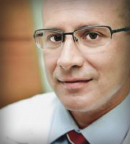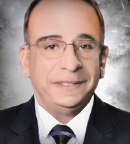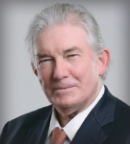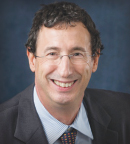COVID-19 pandemic–related disruptions in cancer diagnosis, treatment, and research have varied worldwide and so have the responses to those disruptions. During the Society of Surgical Oncology (SSO) 2021 International Conference on Surgical Cancer Care, members of the Global Forum of Cancer Surgeons described such disruptions in their countries and best practices to ensure continuing care for patients with cancer—practices that may prove useful for future pandemics or other catastrophic events.1
The Global Forum of Cancer Surgeons was formed under the auspices of the SSO to promote cancer surgery worldwide. The panelists represented countries in Europe, Asia, North America, and South America.
From First Isolation in Italy
In Europe, COVID-19 was first isolated in Codogno, a small town in Italy, but it was soon “rapidly running all over Europe,” Domenico D’Ugo, MD, FACS, told conference participants. Dr. D’Ugo is Full Professor of Surgery, Fondazione Policlinico Universitario Gemell-IRCCS, Rome.

The only response to contain and avoid this substantial increase in the numbers of avoidable cancer deaths is vaccination [for COVID-19].— Domenico D'Ugo, MD, FACS
Tweet this quote
A review of the literature pertaining to COVID-19 and surgery, which was published after the first wave,2 concluded: “Patients are being deprived of surgical access, with uncertain loss of function and risk of adverse prognosis as a collateral effect of the pandemic. Surgical services need a contingency plan for maintaining surgical care in an ongoing or postpandemic phase.”
Dr. D’Ugo elaborated: “We should be prepared to identify different scenarios, to face the diminished availability of resources, in order not to deprioritize those diseases that can be as lethal as an infectious disease.” Blood transfusions and intensive care beds are often the first resources to have diminished availability. “Elective surgery cancellation is the problem we should try to be aware of and prepared for to face the new possible outbreaks before they hit us too strongly,” he said.
The Italian Society of Surgical Oncology guidelines, Dr. D’Ugo noted, tackled “how to be prepared to face a sudden limitation of resources in order not to deprioritize cancer surgery.” This is important, he added, because “delaying cancer surgery means having diminished life expectancy. Cancer is a time-dependent progressive disease.”
Interval Stretching
During the pandemic, the time between diagnosis and treatment for colorectal, breast, lung, and esophageal cancers “is not only increasing, but it is possible these patients are being operated on when their prognosis is worse. The price to be paid is years of life lost,” Dr. D’Ugo said.
Dr. D’Ugo continued: “We are facing [many excess] cancer deaths in Western countries in the next 4 to 5 years because of these terrible delays. The only response to contain and avoid this substantial increase in the numbers of avoidable cancer deaths is vaccination. This is the only hope we have at present.”
“We have to convince everybody to be vaccinated. Cancer surgeons,” Dr. D’Ugo noted, “have very strong voices to convince the reluctant and help the lawmakers to make good decisions. We should play our part to make vaccination available all over the world.”
Testing and COVID-Free Hospitals
COVID testing increased rapidly in hospitals in Western Europe. “It is extremely evident from just counting major surgical complications that, where there is no test, there is a higher rate of complications,”3 Dr. D’Ugo commented. “Absolute risk reduction was evident in patients who were pretested to maintain a COVID-free pathway for patients with cancer who were admitted to hospitals.”3
Dr. D’Ugo continued: “The problem is that we have to delay surgery anyway when patients are shown to be positive for COVID-19. We need to wait at least 2 to 4 weeks to perform a sufficiently safe surgery,” he said, but “2 weeks of delay sometimes is a long time for these patients.”
According to Dr. D’Ugo, there is a need for COVID-free hospitals or pathways to maintain cancer care. An international, multicenter cohort study reported lower complication and postoperative infection rates in hospitals with COVID-19–free surgical pathways. That study concluded: “Within available resources, dedicated COVID-19–free surgical pathways should be established to provide safe elective cancer surgery during the current and before future SARS–CoV-2 outbreaks.”4
In Mexico, a major health policy was hospital conversion to COVID-19–exclusive centers, reported Hector Martinez-Said, MPP, MD, Melanoma Clinic Coordinator, Instituto Nacional de Cancerlogia, Ciudad de Mexico. Most patients with cancer and other non-COVID diseases “were referred to a non-COVID hospital or committed to wait for attention,” Dr. Martinez-Said noted. “The major cancer centers in Mexico were not” converted to COVID centers and continued to admit patients with cancer, he added.
Despite these measures, the lockdown, mobility restrictions, and fear of hospitals “generated several negative consequences” for patients with cancer, according to Dr. Martinez-Said. “Suspension of surgery by at least 50% and postponement of appointments for diagnosis or follow-up increased the number of advanced cases and lost opportunities to cure early cases.”
Cervical cancer remains a major health issue in Mexico. This past September, a nationwide effort was launched to encourage patients that “it was safe to go back to the hospital to get screenings for colorectal, breast, and cervical cancers,” Dr. Martinez-Said reported.
Triage System

James R. Howe, MD
In the United States, triage guidelines introduced by the American College of Surgeons in March 2020 “basically divided the acute pandemic into three phases,” depending on the situation at individual hospitals, SSO President James R. Howe, MD, explained. “If you were being overrun with cases, with no ICU beds or ventilators, and supplies were exhausted, then surgery was restricted to those patients who might survive only a few hours. If things were not as bad, but still considered urgent, with many resources being directed to patients with COVID-19, then surgery was restricted to patients who might not survive if they didn’t have operations over the next few days. In the semi-urgent phase, where the COVID trajectory was not rapidly escalating, the guidelines suggested that surgery be restricted to those patients who might be compromised if they didn’t have surgery within the next few months.”
Different levels of urgency prevailed in different parts of the country. “Where I practice in Iowa, we never got to the same level of urgency as in cities, such as New York, Detroit, and New Orleans, although we prepared for it,” Dr. Howe explained. He is Professor of Surgery and Director of Surgical Oncology and Endocrine Surgery at the University of Iowa Carver College of Medicine, Iowa City. “We were able to operate for what were considered essential cases, which meant we could continue to do cancer cases for the most part, but all patients needed COVID testing.”
Disease-site workgroups within the SSO determined “triage principles specific for different cancer sites, assuming a potential 3-month to 6-month delay in care,” Dr. Howe said. “We posted these guidelines online and in the Annals of Surgical Oncology in April 2020.”5
These guidelines could prove useful in the future if there is a COVID resurgence due to new variants, vaccines not being completely effective, “another virulent infectious disease emerges in the future, or there is another natural or man-made catastrophe,” Dr. Howe said. “It was helpful for us to think about the urgency of certain cancers over others, as well as their alternative treatments; for some patients, it was possible to follow them using telemedicine.”
Canceled Screenings and Surgeries
In Brazil, the lack of screening and examinations during the pandemic may have led to an estimated 200,000 people with undiagnosed cancer, according to Alexandre F. Oliveira, PhD, President of the Brazilian Society of Surgical Oncology. “Rates of mammograms were reduced by up to 47% in the first semester of 2020,” Dr. Oliveira reported, and “colorectal cancer diagnoses fell by 46%.”

Alexandre F. Oliveira, PhD
Many routine elective surgeries were canceled in the first half of 2020. They included nonmelanoma skin cancers, reconstructive surgeries, and low-grade tumors, with decisions on some other types of surgery dependent on ICU availability.
“Between April and July 2020, the rate of oncologic surgeries dropped 70% in the public health-care system. Dr. Oliveira said. “We estimate that, by October 2021, around 80% of the population will have been vaccinated. Consequently, the diagnosis and treatment of cancer will be able to come back to normality.”
In Egypt, “the lockdown and redeployment due to COVID-19 pandemic are causing a significant obstruction to cancer diagnosis and management,” noted Ashraf S. Zaghloul, MD, PhD, FACS, Professor of Surgical Oncology, National Cancer Institute, Cairo University. “According to a current projection, COVID-19–related disruptions in clinical services could last for 12 months or more, and delays in surgery related to the COVID-19 pandemic could substantially worsen survival outcomes,” Dr. Zaghloul said.
“Cancer surgeries have not been delayed in Korea because of the risk of cancer progression. We proceeded with elective surgery for patients with cancer,” said Do Joong Park, MD, PhD, Professor at Seoul National University Hospital.

Ashraf S. Zaghloul, MD, PhD, FACS

Do Joong Park, MD, PhD
All patients scheduled for “elective cancer surgery were screened for COVID-19 polymerase chain reaction before admission. During surgery for patients who tested positive or were suspected of having COVID-19, health-care workers (including surgeons) wore personal protective equipment, such as N95 or K94 face masks, goggles, double gloves, surgical caps, and gown and shoe covers,” Dr. Park explained. These precautions are expected to be “permanent during emergency surgery for patients with COVID-19.”
More Advanced Disease
In Pakistan, “when the pandemic was officially announced in February 2020, and all attention and resources were diverted from the management of patients with cancer toward that of patients with COVID, a few islands of safety remained, and we were able to carry on major cancer surgery in those centers,” reported Haroon Javaid Majid, FRCSEd, Professor and Head of Surgery and Surgical Oncology at Shaikh Zayed Medical Complex in Lahore. “In the past 12 months or more, we operated on 185 patients with cancer. In my opinion, all these patients were affected due to delays in diagnosis. However, we did our best to follow guidelines and national standards.” In addition to patients having more advanced disease, “the rate of referral for new adjuvant downstaging therapies was higher.”

Haroon Javaid Majid, FRCSEd
Less than 2% of patients with cancer scheduled for surgery tested positive for COVID, and either they were symptomatic or mildly symptomatic. These patients were isolated and rescheduled for surgery when they tested negative. “We saw no COVID infection in patients with cancer in the 30-day postoperative period. We had no COVID-related mortality in patients with cancer. Two deaths in the pancreatic group were not due to COVID,” Dr. Majid reported.
Addressing Social Inequalities
In Chile, “more than 50% of hospital beds were transformed into COVID beds,” and “surgical activity was restricted to emergency operations and cancer surgery,” noted Augusto Leon, MD, Professor of Surgery, Catholic University of Chile, Santiago. “The number of cancer operations was reduced to about 20% to 30% of usual,” he said. Surgeries for “many patients with tumors deemed to be ‘could wait’ were postponed, which has been causing serious problems now. This situation is more evident for poorer patients with less mobility, less access to health care, and more fear of the COVID contagion.”

Augusto Leon, MD
To alleviate the situation, many surgical operations were done as day or ambulatory surgeries, “thus lowering the costs and reducing the fees for cancer surgery for all patients, especially the poor,” who sometimes received free care, Dr. Leon noted. Private hospitals and clinics accepted patients from the public system and charge low or no fees.
“These palliative measures have made the tragedy less serious. Even so, we are now facing a complicated wave of postponed surgeries that require a solution, not only cancer surgery, but surgeries of other types,” Dr. Leon said. “For cancer surgeries, we are now operating at roughly 50% more volume than we used to before the onset of the pandemic.”
Arnab Gupta, FRCS, Medical Director in the Department of Surgical Oncology, Saroj Gupta Cancer Centre and Research Institute, Kolkata, India, also faced the compounded challenges of cancer surgery performed amid a pandemic in a financially struggling public hospital. Lack of funds limited infrastructure changes.
Dr. Gupta stressed the importance of making sure surgical patients “were screened properly” with COVID testing, “which was difficult initially,” and “making sure everyone was wearing personal protective equipment and an N95 mask in the operating room.” Dr. Gupta also expressed concern about future COVID strains and counseled continued vigilance in testing for patients’ infection status and selecting patients for surgery.

Arnab Gupta, FRCS
“In our 1-year experience, patients with cancer actually did not do too badly with COVID. We had a lot of patients who were infected with COVID, but most of them were asymptomatic, and all recovered within 2 to 3 weeks,” Dr. Gupta said. He also noted that most were very young.
Government Financial Support
“Israel has experienced a quite high caseload per population, as compared to other countries around the world, but a lower mortality rate,” noted Douglas Zippel, MD, FACS, a surgical oncologist at the Chaim Sheba Medical Center, Tel Hashomer. “The reason for this is multifactorial, but one of the main reasons is probably the fact that we have a younger population compared to similar countries.”
The caseload of general surgeries at Chaim Sheba Medical Center “took a serious dip” to about 1,000 per month in March and April 2020, but it came back to the usual average of 2,200 per month “irrespective of the subsequent COVID waves,” Dr. Zippel said. A study revealed that “the reduction in cases was mostly in acute surgical admissions and urgent operations, with another reduction in operations not related to cancer, with the surgical oncology cases basically remaining more or less stable,” Dr. Zippel reported.

Douglas Zippel, MD, FACS
“The answer to the question of how we were able to maintain our surgical oncology practice levels is basically money,” Dr. Zippel acknowledged. “The hospital invested an incredible amount of money in COVID, in additional infrastructure, in additional ICU beds, ventilators, extracorporeal membrane oxygenation machines, and personal protective equipment; it ended up spending $123 million over budget, but that shortfall was made up, dollar for dollar, by the government almost immediately,” he stated.
“Israel had a pretty successful vaccine rollout, which has gotten a lot of play in the media. We are actually first in the world in our ability to get those vaccinations out, and we are quite proud of that,” Dr. Zippel stated.
Cancer Research
When the first wave of the COVID-19 pandemic hit Canada in March 2020, “clinical activity was reduced in many hospitals, and research followed a similar pattern to preserve resources and decrease the rates of transmission and infection among participants,” reported Jason Park, MEd, MD, President-Elect of the Canadian Society of Surgical Oncology.
“For participants already enrolled in a trial, efforts were made to continue treatment schedules on open trials,” Dr. Park continued. “Enrollment of new patients in open trials or activation of new trials was stopped in many centers, depending on the availability of staff, resources, and patient safety.” However, by August 2020, “most trials gradually increased their capacity. We never really experienced the same type of slowdown during our second wave,” which occurred in October 2020.

Jason Park, MEd, MD

Akinobu Taketomi, MD
“COVID-related trials were prioritized by reducing regulatory burdens. Many ethics boards also provided expedited reviews of COVID projects,” Dr. Park stated. “Health Canada made it a priority to develop different forms of informed consent when in-person consent was not possible.” They included electronic or telephone consents.
“Although COVID 19 has presented many research-related challenges, we hope there will be some positive, long-lasting effects,” Dr. Park stated, “especially related to more streamlined processes, virtual care, pragmatic trials, and international registries.”
In Japan, “the number of surgical cases has temporarily decreased, but we can continue cancer surgery research,” Akinobu Taketomi, MD, Professor, Hokkaido University, Sapporo, said. “Education for medical students has been restricted,” Dr. Taketomi reported, with teaching “shifted to online platforms whenever possible.”
Editor’s Note: The COVID-19 pandemic and its impact on patients with cancer has been an ever-changing situation globally. The panel discussion reported in this article took place on March 19, 2021, and statements about each country’s experience reflected the situation at the time and over the first year of the pandemic; circumstances may have changed significantly in some countries since then.
DISCLOSURE: Dr. Park has received research grants from Daewoong Pharmaceutical, Johnson & Johnson, LivsMed, and Medtronic, and has also received a research grant and speaker honoraria from Olympus and Stryker. All other speakers reported no conflicts of interest.
REFERENCES
1. Cancer surgery during a pandemic: A global perspective. SSO 2021 International Conference on Surgical Care. Panel discussion. Presented March 19, 2021.
2. Søreide K, Hallet J, Matthews JB, et al: Immediate and long-term impact of the COVID-19 pandemic on delivery of surgical services. Br J Surg 107:1250-1261, 2020.
3. COVIDSurg Collaborative: Preoperative nasopharyngeal swab testing and postoperative pulmonary complications in patients undergoing elective surgery during the SARS–CoV-2 pandemic. Br J Surg 108:88-96, 2021.
4. Glasbey JC, Nepogodiev D, Simoes JFF, et al: Elective cancer surgery in COVID-19–free surgical pathways during the SARS–CoV-2 pandemic: An international, multicenter, comparative cohort study. J Clin Oncol 39:66-78, 2021.
5. Bartlett DL, Howe JR, Chang G, et al: Management of cancer surgery cases during the COVID-19 pandemic: Considerations. Ann Surg Oncol 27:1717-1720, 2020.

